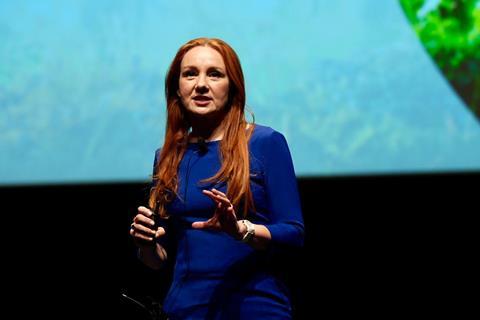Organisation sought to create a definition that has meaning for growers and meets consumer demand

A definition for regenerative agriculture has been created by the International Fresh Produce Association (IFPA).
Regen ag is one of the buzzwords of the farming industry right now, but discussion of the topic has been hampered by the lack of a clear definition and understanding of what the broad topic entails.
However, speaking at the Global Produce & Floral Show (GPFS) in Atlanta last week, IFPA vice president of sustainability Tamara Muruetagoiena revealed the organisation’s Sustainability Council had spent a year coming up with a definition that would help the industry in its discussions of the issue.
The definition is: “Regenerative agriculture is a holistic farming approach that aims to restore and enhance the natural recipients of agro-eco systems while supporting the long-term health and viability of agricultural businesses and communities. The foundation of this farming system is the integrated management of soil health, biodiversity, water resources, human health and climate.”
Muruetagoiena explained that by coming up with the definition, IFPA wanted the industry to be “ahead of the game” and not have regulators define regen ag on the industry’s behalf. “We know the market wants it, we know consumers want it, but we wanted a definition that was good for our industry and meant something for our growers,” she said.
“This is a definition that was not made in 1956 or 1983. It’s 2024 and today we have a huge challenge that is climate change and we need to be adapted to it, but be a solution to it as well. So the word ‘climate’ was part of this definition for that very reason and we see climate-smart agriculture and regenerative agriculture as one, and one of the solutions to climate change.”
The definition comes against the backdrop of the US Department of Agriculture (USDA) investing $3 billion in climate-smart and forestry-smart projects. That has seen IFPA receive two grants for projects that will enrol 100 growers to trial climate-smart practices for four years, measuring carbon and greenhouse gas emissions, as well as yields.
“We have the largest experiment ever in the produce and floral sector for climate-smart agriculture with these two combined projects,” Muruetagoiena said. “That is huge, because we are really invested to be climate solutions. Produce is the original climate solution, because consuming more fruits and vegetables already lowers your carbon footprint. But investing in climate-smart agriculture and soil health furthers that work.”
Muruetagoiena also called on retailers to “tell the industry’s story” and explain to consumers how invested they are in these practices.



